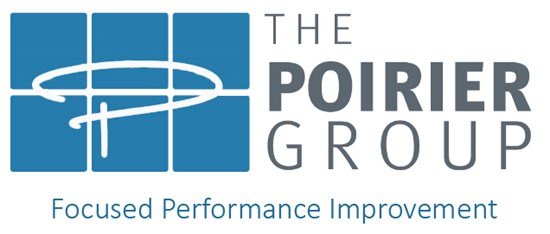Toronto, Ontario--(Newsfile Corp. - November 25, 2025) - The Poirier Group (TPG), a management consulting firm specializing in healthcare and operational excellence, has issued a statement responding to the Ontario government's recent directive instructing hospitals to identify cost savings within their operations.
According to TPG's Healthcare Partner, Dale Schattenkirk, the directive presents both a challenge and an opportunity for Ontario's healthcare system
"History shows that when hospitals respond to financial pressure through service reductions, the short-term gains are outweighed by long-term impacts on access, quality, and staff morale," said Schattenkirk. "A sustainable solution lies not in cutting, but in redesigning how care is delivered."
Dale Schattenkirk (Healthcare Partner, The Poirier Group)
To view an enhanced version of this graphic, please visit:
https://images.newsfilecorp.com/files/11628/275931_9939fb76e4e788e1_001full.jpg
The Broader Context: A System Under Pressure
While healthcare spending in Canada has tripled per capita over the past twenty-five years, access to care and patient satisfaction have declined. Canada employs more physicians and nurses than ever before, yet hospitals continue to face rising wait times, staff burnout, and emergency department closures.
The Poirier Group's analysis wash shared in the recently published Healthcare Quarterly article "Are We Actually in the Biggest Healthcare Crisis Ever Seen?", authored by Schattenkirk. This article examines how operational inefficiencies, administrative complexity, and fragmented leadership structures have contributed to persistent challenges across Canada's healthcare landscape.
"This paradox suggests that the issue is not a lack of funding or talent," Schattenkirk explained. "It's how our systems are designed and managed. Administrative burden, disconnected processes, and outdated workflows consume valuable time that should be directed toward patient care."
Proven Solutions: Lean Process Improvement
The Poirier Group points to decades of evidence showing that operational reform-particularly through Lean process improvement methodologies-can achieve both financial and clinical results without sacrificing frontline services.
A recent example completed by The Poirier Group involved reducing Overall Average Length of Stay (OALoS) and emergency room wait times in a Caribbean country. The average hospital in Canada operates with a ratio of approximately ten staff per patient, while the hospital where The Poirier Group conducted the engagement had a ratio of 4.5 to one-starting from a significant staffing deficit by comparison. Over a twenty-week period, OALoS was reduced by two days, and emergency room wait times were cut by 50%, using the existing staffing complement. All reductions were achieved through process redesign without compromising the quality of care.
Lean principles, long proven in manufacturing and service sectors, have been successfully applied in several Canadian healthcare systems. Process mapping, staff engagement, and standardized workflows lead to reduced redundancies and improve patient flow by targeting non-value-added activities rather than reducing care availability.
Notable examples include:
Manitoba's Lean program, which achieved an annual reduction of approximately two million patient wait days through administrative streamlining.
Prince Edward Island's healthcare reform, which shortened hospital stays by an average of two days per patient.
Long-term care facilities in Ottawa, which reported significant reductions in infection rates and improved patient outcomes after adopting Lean-based process improvements.
Each of these initiatives, according to TPG's analysis, demonstrated that measurable savings and quality improvements are achievable when healthcare leadership remains committed to operational excellence over time.
"The most successful systems we've seen are those that invest in improving the working environment for staff rather than cutting frontline resources," said Schattenkirk. "Real savings come from eliminating rework, delays, and redundancy-not from reducing care."
Is Canada Really in the Worst Healthcare Crisis Ever?
To view an enhanced version of this graphic, please visit:
https://images.newsfilecorp.com/files/11628/275931_9939fb76e4e788e1_002full.jpg
Leadership Commitment: The Key to Lasting Impact
The Poirier Group notes that the primary barrier to sustained improvement across Canada's healthcare sector has not been a lack of innovation, but rather a lack of consistent leadership commitment. Shifting political priorities, budget cycles, and executive turnover often disrupt long-term improvement initiatives before their benefits can fully materialize.
"When faced with fiscal constraints, it's tempting to look for immediate cost reductions," Schattenkirk added. "But the healthcare systems that thrive are those that maintain focus on continuous improvement and engage their workforce as partners in redesigning processes."
The firm emphasizes that Ontario hospitals now have an opportunity to set a national example by prioritizing systemic efficiency and staff engagement over service retrenchment.
"A bad system will beat a good person every time," Schattenkirk noted, quoting Dr. W. Edwards Deming, a pioneer of quality management. "If Ontario's hospitals focus on improving the systems that support care delivery, they can protect both patients and providers while meeting fiscal goals."
A Call for Operational Excellence in Ontario
The Poirier Group's healthcare practice works with organizations across Canada to embed Lean and continuous improvement principles at the system level. Through structured problem-solving, leadership alignment, and data-driven decision-making, the firm supports healthcare institutions in building agile, sustainable operations that deliver better outcomes for patients and staff alike.
TPG's response highlights that Ontario's current fiscal directive does not have to translate into service cuts. Instead, it can serve as a catalyst for transformational change if hospitals focus on long-term operational excellence.
"Ontario has a chance to lead Canada in redefining what value-based healthcare truly means," said Schattenkirk. "By redesigning processes rather than reducing care, hospitals can achieve both financial accountability and improved patient outcomes." This is solvable!
The full analysis of Canada's healthcare system and operational reform strategies can be found in Healthcare Quarterly: "Are We Really in the Worst Healthcare Crisis Ever?"
The Poirier Group
To view an enhanced version of this graphic, please visit:
https://images.newsfilecorp.com/files/11628/275931_9939fb76e4e788e1_003full.jpg
About The Poirier Group
The Poirier Group is a North American management consulting firm specializing in business transformation and operational excellence. With deep expertise in healthcare, supply chain, advanced technology, and lean change management, TPG helps health systems improve performance, drive lasting change, and equip frontline teams with practical tools and methodologies that effect lasting change.
Media Contact:
Tina Forth
Marketing & Communications
The Poirier Group
905 624-5855
tina.forth@thepoiriergroup.com
www.thepoiriergroup.com

To view the source version of this press release, please visit https://www.newsfilecorp.com/release/275931







